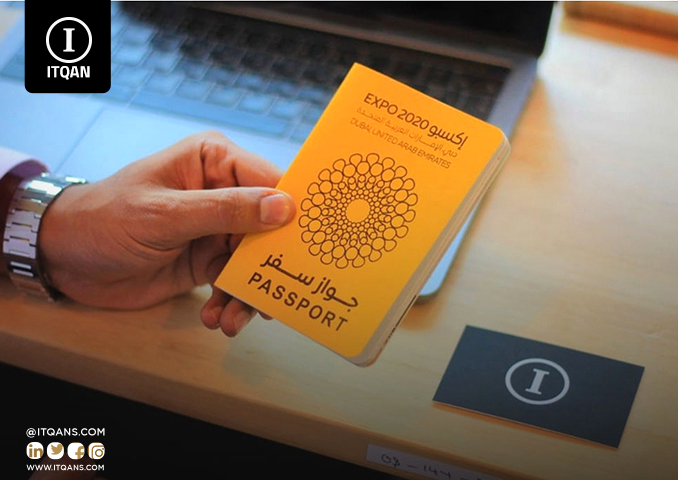Opening a company in the UAE constitutes an important strategic step for investors, given the dynamic and encouraging economic environment in the country. This process requires compliance with several basic conditions to ensure the company’s success and compliance with local and international legislation. This includes choosing the appropriate type of company, defining the business activity, and arranging the necessary legal documents. It is also important to consider the financial, tax and residency requirements related to running the company. The UAE’s strong infrastructure and advanced legislative framework provide ample opportunities for business success, making it a preferred destination for international investors. In this article, we will learn about the conditions for opening a company in the Emirates and how to open a company in the Emirates.

جدول المحتوى
ToggleOpening a company in the UAE
Opening a company in the Emirates, especially in the Emirate of Dubai, represents an important strategic step for investors seeking to benefit from a developed investment environment and a strategic geographical location. Dubai is one of the most prominent economic and commercial centers in the world, combining modern technology with advanced infrastructure, making it an ideal business haven in the Middle East.
Dubai is known for its open and tolerant economic policies, providing a wide range of investment opportunities in various sectors such as retail, real estate, financial services, technology, and hospitality. The Emirate of Dubai also provides an advanced legal and regulatory environment that helps facilitate procedures for establishing and operating companies with high efficiency and transparency.
In addition, Dubai does not impose taxes on corporate income or profits, making it an attractive destination for investors looking for a tax-free environment. There are also a number of free zones available in Dubai that provide additional benefits such as 100% foreign ownership of the capital, customs exemptions, and simplified legislative procedures.
Conditions for opening a company in the Emirates
Opening a company in the UAE requires compliance with several basic conditions, including:
- Choosing a company type: Investors should choose the appropriate company type, such as a limited liability company, a sole proprietorship, or a free-range company, according to the type of activity and business outlook.
- Determine the business activity: The scope of the business activities that the company will undertake must be determined, and ensure that they are in line with the required local licenses.
- Capital contribution: The capital contribution required to establish the company must be determined, which varies according to the type of company and activity.
- Legal Documents: It is required to submit the necessary legal documents, such as company contracts, articles of association, lists of shareholders, directors, etc., and document them in the required manner.
- Company registration: The company must register with the relevant government agencies, such as the Department of Economic Development or the competent authorities in free zones, depending on the chosen location.
- Licenses and Permits: The company is required to obtain the necessary licenses and permits to conduct its business activity, such as building or health and safety permits as needed.
- Tax and Legal Compliance: The company must comply with local tax and legal regulations, which require financial reporting and compliance with required disclosure requirements.
- Administrative and organizational measures: These include the measures and procedures necessary to manage the company effectively and orderly, and ensure ongoing compliance and sustainable growth.
Fees for opening a company in the UAE
In the UAE, fees for opening a company vary based on several factors, including the type of company, where it is incorporated (on the mainland or in a free zone), the type of business chosen, registered capital, and services required. Here’s an overview of some of the fees that may apply:
- Basic registration fees: These fees include the costs of registering the company with the Department of Economic Development or the relevant authority, and vary according to the type of company and place of establishment.
- Licenses and Permits Fees: These fees include the costs of obtaining the necessary licenses and permits to start a business, such as building or health and safety permits.
- Administrative Services Fees: These fees include the costs of administrative services provided by consulting firms or incorporation service providers to assist with legal and administrative procedures.
- Tax fees: Tax fees vary depending on the type of tax applied to the company, such as value-added tax (VAT) and income taxes.
- Banking fees: These fees include the costs of opening a company bank account and subsequent banking services.
Documents required to open a company in the UAE
To open a company in the UAE , the following legal documents are generally required (details may vary slightly depending on the type of company and place of incorporation):
- Registration application form: This is the official form required to submit an application to register the company with the competent authority.
- A copy of the company contract (Memorandum of Association): A document that defines the company’s structure, the scope of its activities, and the terms of its establishment.
- Articles of Association form: This is the document that defines the company’s management rules and the rights and obligations of shareholders and managers.
- List of shareholders and directors: Comprehensive details of the shareholders and directors who will manage or own the company.
- Certificate of Incorporation: A document proving the registration of the company as a legal entity.
- Government approvals and permits: The necessary permits and approvals must be obtained from the relevant government agencies, such as the Department of Economic Development or the Free Zone Authority.
- A copy of the passport for shareholders and directors: A copy of the passports of the individuals involved in the company must be submitted.
- Office leases or certificates of ownership: Proof of the company’s address is required, whether it is a lease for the office or a certificate of ownership for the building.
- Financial report and business plan: This document is required in some cases, especially when applying for some licenses and financing.
- Building Permit: If the business activity requires a commercial building, a valid building permit is required.
Advantages of establishing a company in Dubai
Establishing a company in Dubai has several advantages that make it a preferred destination for international businessmen:
- Strategic location and advanced infrastructure: Dubai is located at the intersection of continents and enjoys a strategic location that facilitates access to multiple markets, and provides an advanced infrastructure of airports, ports, and transportation networks.
- Favorable investment environment: Dubai is characterized by flexible economic policies and laws that encourage foreign investment, which helps attract capital and investors.
- Advanced and reliable legal system: Dubai’s legal system provides complete legal protection for companies and investors, with a transparent and effective regulatory framework.
- Availability of skilled workers: Dubai has a multinational community and provides skilled workers from various sectors and specializations.
- Active economic and commercial interaction: The Dubai market is a center for business and trade, giving companies the opportunity to interact with multiple global and local companies.
- Advanced legal and administrative structure: Dubai provides an advanced administrative structure with easy procedures for establishing and managing companies, in addition to various services for legal and administrative support and consultations.
- Economic and tax freedom: Businesses in Dubai enjoy great economic freedom as the emirate does not impose taxes on personal profits or corporate taxes in most sectors.
- Free zones and special facilities: Dubai offers free zones that offer financial and administrative facilities such as customs and tax exemptions and independent laws, making them ideal for some private business activities.
In the conclusion of the article that addresses the conditions for opening a company in the Emirates , you can emphasize the importance of adhering to the legal and administrative conditions to ensure the success of the establishment and operation process. Those wishing to invest in the UAE must be aware of local laws and required procedures, in addition to good planning and professional advice. By adhering to the necessary requirements, companies can benefit from the modern and advanced economic environment that the UAE offers.
The most important frequently asked questions about opening a company in the UAE
What types of companies can be opened in the UAE?
Local companies (such as a limited liability company) or branches of foreign companies can be opened, in addition to free companies in free zones.
What are the procedures necessary to establish a company?
Procedures include registering with the Department of Economic Development, obtaining the necessary permits, and submitting required documents such as company contracts and articles of association.
Are there restrictions on the company’s activity in the Emirates?
Yes, some commercial activities are subject to special licenses and prior permits from the relevant government authorities.
What are the taxes applied to companies in the UAE?
Companies in free zones enjoy full tax exemptions on profits for up to 50 years, while taxes in other sectors vary according to federal and local laws.
What are the expected costs of establishing the company?
Costs vary based on company type, location and activities, and include registration fees, required capital, legal and advisory procedures.

















